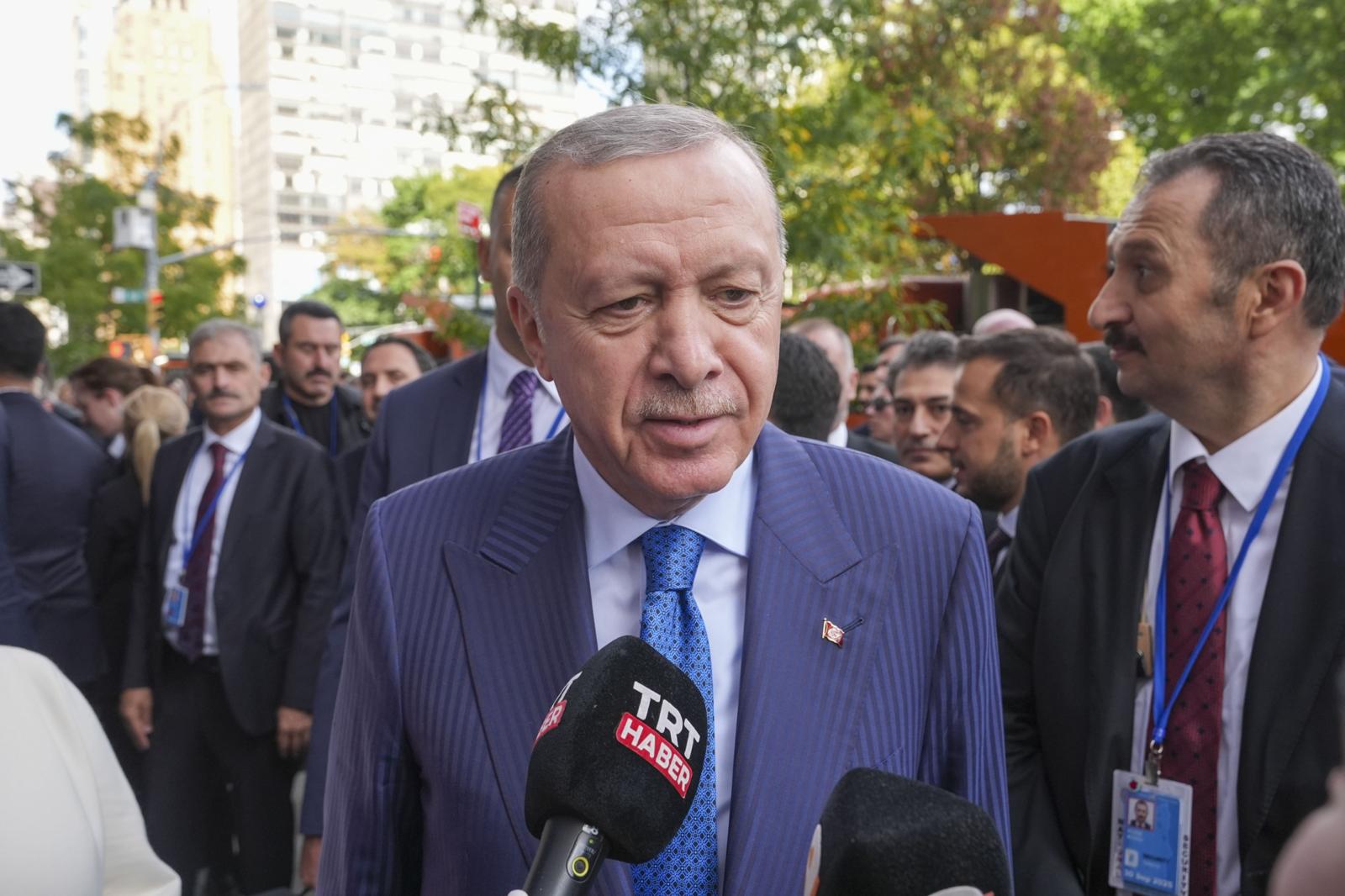The “rights of our brothers and sisters in the Turkish Republic of Northern Cyprus” will be on the agenda when Turkish President Recep Tayyip Erdogan addresses the United Nations general assembly on Tuesday, he said before departing Turkey for New York.
He will be the general assembly’s fourth speaker, making his address during Tuesday’s morning session, and away form the matter of Cyprus, said that he will “specifically address the humanitarian disaster and atrocities in Gaza”.
“I will also touch upon Turkey’s efforts to ensure stability in the region and its contributions to maintaining international peace … I will once again have the opportunity to explain to the world Turkey’s foreign policy,” he said.
After making his speech to the general assembly on Tuesday, Erdogan is expected to travel to Washington DC to meet United States President Donald Trump at the White House on Thursday.
There, he said, he will discuss with Trump “issues which would strengthen bilateral cooperation, particularly trade, investment, and the defence industry”.
“Regional issues will undoubtedly be at the forefront of our agenda. As two friends and allies, the importance of our close consultation and coordination is becoming increasingly clear every day. We have previously expressed our support for Trump’s vision of global peace and the efforts he has put forth to achieve this goal,” he said.
With this in mind, he said Turkey “desires a complete end to the bloodshed and tears in our region, and instead, for peace and tranquillity to prevail in every square metre”.
“Whatever we do, we do solely for this purpose. God willing, we will continue on this path,” he said.
As well as his meeting with Trump, Erdogan said he will hold meetings with “numerous heads of state and government”, as well as UN Secretary-General Antonio Guterres, during the week.
At last year’s general assembly, Erdogan had been among the first speakers and had said that the federal model for a solution to the Cyprus problem has “completely lost its validity”.
He added that there are “two separate states and two separate peoples on the island” of Cyprus, and that “the acquired rights of the Turkish Cypriots, namely sovereign equality and their equal international status, must be re-committed, and their isolation must end.”
President Nikos Christodoulides had responded in his speech the following day, saying that “illegality stemming from invasion, aggression and use of force cannot be recognised”, and that “international law is not a la carte”.
Greek Prime Minister Kyriakos Mitsotakis then spoke towards the end of the week, saying that a two-state solution to the Cyprus problem “cannot happen and cannot be accepted”, and reaffirming his country’s support for a bizonal, bicommunal federal solution.
Such a solution, he said, must entail “one sovereignty, one citizenship, and one international personality, in accordance with the UN security council’s resolutions.”






Click here to change your cookie preferences